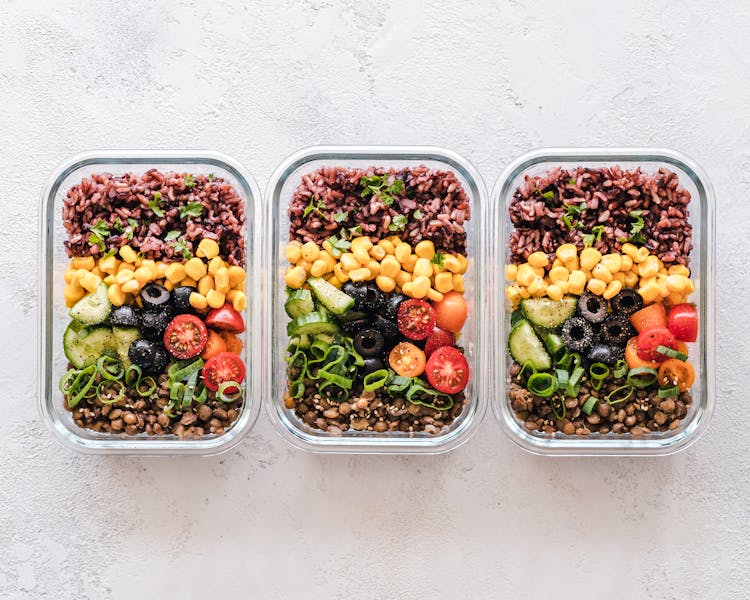Table of Contents
💡 TLDR Summary:
- 🥗 Mindful Meal Planning integrates intuitive eating for better nutritional choices.
- 📅 Pre-planning meals helps reduce stress and promotes healthier eating patterns.
- 🍽️ Focus on wholesome ingredients enhances mealtime satisfaction.
- 🛒 Create a simple grocery list to streamline your shopping experience.
- 🥘 Experiment with new recipes to keep meals interesting.
In a world filled with fast-food options and busy lifestyles, many individuals find themselves turning to quick meals that often lack nutritional value. Enter Mindful Meal Planning, a revolutionary approach that allows you to take charge of your nutrition while fostering a more positive relationship with food. By merging principles of intuitive eating with thoughtful meal preparation, it's possible to create a balanced, satisfying diet that aligns with your wellness goals. This approach not only nurtures the body but also promotes mental well-being, encouraging individuals to view their meals as nourishment rather than a source of stress.
At the core of mindful meal planning lies the concept of mindful eating. This practice encourages you to eat with full attention to the experience of your meal, including the flavors, textures, and even the colors of the food on your plate. By tuning into these sensory experiences, one can effectively manage hunger and fullness cues, which decreases the likelihood of emotional eating. Mindful Eating 101 serves as a delightful introduction to this transformative journey.
Prioritizing meal planning is also essential. It allows you to select meals in advance, ensuring that you always have nutritious ingredients available. This proactive approach simplifies portion control and prompts smarter food decisions. By dedicating time to plan your meals, you eliminate the last-minute scramble, ensuring that every meal fits within your bigger picture of wellness. You may want to start small by incorporating budget-conscious recipes, which is precisely what Mindful Meal Planning That Will Help You Reduce Kitchen Stress is all about.
Why You Should Consider Mindful Meal Planning
1. Reduces Guesswork: When you take the time to plan your meals, you eliminate the uncertainty of what to cook, decreasing the chances of making impulsive, unhealthy food choices.
2. Breaks Diet Culture: Mindful meal planning isn't about strict diets; it's about embracing sustainable lifestyle changes that prevent the cycle of restriction followed by overindulgence. This shift can mitigate risks associated with slow metabolism and weight regain.
3. Increases Mealtime Satisfaction: By focusing on flavorful, nutritious foods that you genuinely enjoy, you enhance your overall meal experiences. This satisfaction promotes a deeper connection with food and your wellbeing.
4. Avoids Common Mistakes: Proper meal planning helps you steer clear of common pitfalls like overcomplicating recipes, over-planning, or neglecting meal prep altogether. These habits can lead to stress and subpar meal experiences.
Easy Ways to Implement Mindful Meal Planning
For beginners, starting small is crucial. Consider planning just two to three meals a week to gradually ease into mindful meal planning. As you become more familiar with the process, you can increase your planning frequency and the complexity of your meals. Mindful Eating: Creating a Meal Plan provides valuable strategies to kickstart your journey.
Creating a grocery list helps trap in your planning efforts. By identifying the meals you'll prepare and listing the necessary ingredients before heading to the store, you not only make your shopping trip more efficient but also save time and money.
Planning ahead for busy days is incredibly valuable. Meal prepping or having healthy, easy-to-grab snacks on hand can make it easier to stick with your nutrition goals even when life gets hectic, thus avoiding impulse purchases or settling for unhealthy alternatives. Healthy Eating Guidelines from Research illustrates the importance of maintaining these practices amid hectic schedules.
Being adventurous in the kitchen can also keep meal planning exciting and varied. Experimenting with new flavors, ingredients, or cuisines not only beautifies your meals but enriches your palate, allowing you to discover foods you might have never considered. This experimentation is what maintains the joy of cooking at home and encourages further engagement with food.
Mindful Meal Planning Recipes
Some delightful recipe ideas include:
- Quinoa Veggie Stir-Fry: Quick and simple, this dish features quinoa paired with an array of colorful vegetables. With minimal seasoning of your choice, it can be transformed into a flavorsome meal that retains the nutrients of your vegetables.
- Avocado Toast with Poached Egg: A beautifully nutritious and satisfying meal that combines whole-grain bread, creamy avocado, and a perfectly poached egg provides a hearty, fulfilling breakfast or snack that can easily be included in your mindful meal rotation.
Additionally, for those looking to deepen their meal prepping skills, consider exploring books like Meal Prep for Weight Loss or Skinnytaste Meal Prep. These resources will guide you in creating nutritious meals efficiently.
Common Queries on Mindful Meal Planning
What is mindful meal planning and how can it benefit me?
How can I start mindful meal planning?
In conclusion, Mindful Meal Planning serves as a pathway to fostering a healthier relationship with food, enhancing your experience in the kitchen, and yielding better health outcomes. By prioritizing preparation and awareness, you cultivate a nourishment-focused lifestyle that translates into long-term wellness.
📝 Key Takeaways:
- 🤗 Embrace mindful meal planning to enhance your nutrition and well-being.
- 🍏 Prioritize meal planning to reduce stress and improve food choices.
- 🍴 Enjoy delicious meals that satisfy your taste and nutrition needs.
- 🎉 Be adventurous while cooking and try new recipes to keep meals exciting.
- 🛍️ Create grocery lists to optimize your shopping efficiency.

Investigate important concepts here
Navigation
Latest Posts
Mindful Meal Planning: A Comprehensive Approach to Nutrition
Adventure Activities in Tropical Waters
Establishing a Financial Plan